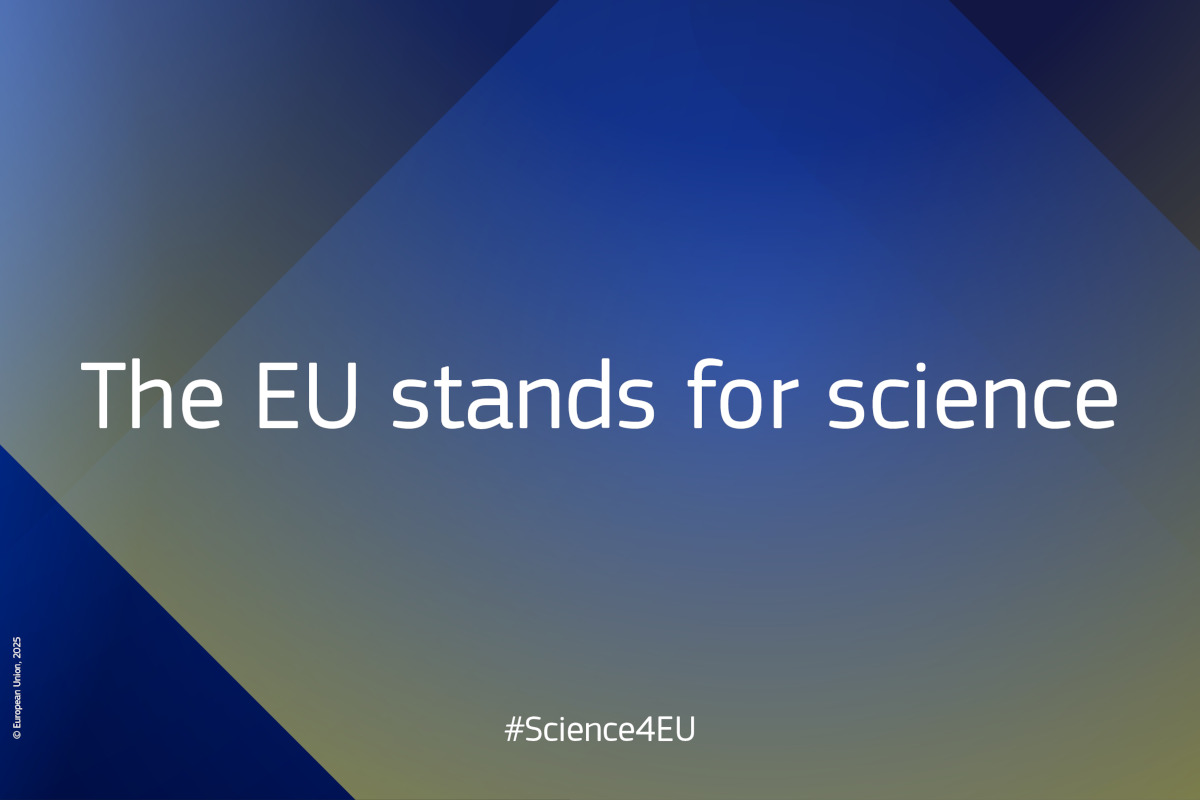As Europe prepares for the leap to 6G, researchers, policymakers and citizens are working together to make sure that the next digital revolution is not just faster, but also ethical, sustainable and inclusive.
Special series

Science4EU
The Science4EU campaign shows how the EU stands for science. It shines a spotlight on the scientists, researchers, and innovators working with EU support to improve our lives and shape a better future for everyone.
Do you also stand for science?
Podcast
Media AV Portal Audio
More stories

Deep under the Mediterranean, scientists have recorded the highest-energy neutrino ever detected. Now they are working out what this elusive particle could reveal about the universe we live in.
Most popular
-
1
-
2By Jonathan O’Callaghan
-
3By Gareth Willmer
-
4
-
5By MICHAELA NESVAROVA
Top videos
Turning undersea cables into a global natural hazard and environmental monitoring system
5 November 2025
New malaria vaccine offers hope for mothers and babies across Africa
3 November 2025
Past articles
Diet drinks, chewing gum and table-top sweeteners can increase the risk of metabolic diseases such as Type 2 diabetes, heart disease and stroke because ingesting aspartame, saccharin and sucralose makes our bodies less able to break down sugars with insulin, scientists have shown.
Women should be compelled to sit on scientific committees if they receive funding for research, according to Professor Pascale Cossart, director of research into bacteria-cell interactions at the Pasteur Institute in Paris.
Prof. Cossart is the 2014 recipient of the European Molecular Biology Organization (EMBO) and Federation of European Biochemical Societies (FEBS) Women in Science Award, in recognition of her work in bacteriology and in mentoring young scientists.
If you haven’t had a bucket of iced water poured over your head recently, you probably know someone who has. The astonishingly successful #icebucketchallenge Facebook campaign, in which people agree to a chilled soaking to raise money for amyotrophic lateral sclerosis (ALS), has generated unprecedented publicity for a previously little-known disease.
‘Davenport’, ‘settee’, ‘couch’ – less common words are more likely to go out of fashion than precise terms, according to researchers who are borrowing techniques from genetics to study the evolution of language. Their results could help inform the way that computers communicate.
Scientists working on a new definition of the kilogram that will fundamentally overhaul the international measurement system are finding the problem harder than expected due to the difficulty of accurately measuring natural constants in the lab.
The EU is making important progress in researching the links between environment and disease, but the field needs more collaboration from the rest of the world, according to its pioneering researcher Dr Chris Wild, director of the World Health Organization’s International Agency for Research on Cancer.
Parents may one day feed high-strength bacteria to their kids in order to stop them from developing early onset diabetes, after research showed that over-hygienic environments are leading to a rise in incidences of the disease.
Why do some people develop asthma, Parkinson’s or cancer? The answer is often down to the subtle interplay between our DNA, our diet, our lifestyle and the pollutants we have been exposed to.
Why is the modern world making us ill? In this issue, Horizon examines the emerging field of exposomics, which looks for answers in the hidden world around us.
An experiment performed at a UK laboratory has recreated a supernova in miniature to settle a longstanding mystery about how some of these explosions travel through space.
Researchers have found that people with higher levels of vitamin D have a reduced risk of developing the most common form of liver cancer, a disease with a particularly poor survival rate as it is often diagnosed at a late stage.
Studying an area of interest rather than chasing fashionable subjects is the best route to success, according to ERC grantee Professor Martin Hairer, winner of the 2014 Fields Medal, the world’s foremost maths prize, for his work on random systems.
Passing an electrical current through the brain can help some people learn maths faster or behave more altruistically.
Looking in the mirror in the morning can help us assess when we are under the weather. Now researchers are using modern technology to capture information about physical appearance to assess the state of health of elderly people.
Scientists have increased the lifespan of fruit flies by genetically manipulating microscopic structures in their cells, a technique that might help researchers find the key to longer life in humans.
Wind turbine arrays, fish farms and seaports are to be combined into giant offshore facilities that can ease pressure on crowded coastlines and access some of the untapped potential of Europe's oceans.
An audio bracelet could improve the ability of blind and partially sighted children to interact with the world around them.
Children born from mothers who were poorly nourished or stressed in the early weeks of pregnancy could be more prone to develop diseases such as diabetes, attention deficit hyperactivity disorder (ADHD), or even end up with below-average IQs.
Engineers are starting work on the world’s biggest freezer – a giant cryogenic plant that will cool parts of the International Thermonuclear Experimental Reactor (ITER) to a fraction above absolute zero.
Scientists are closing in on the genes that make us eat too much, and their findings could lead to powerful new drugs in the future.






























